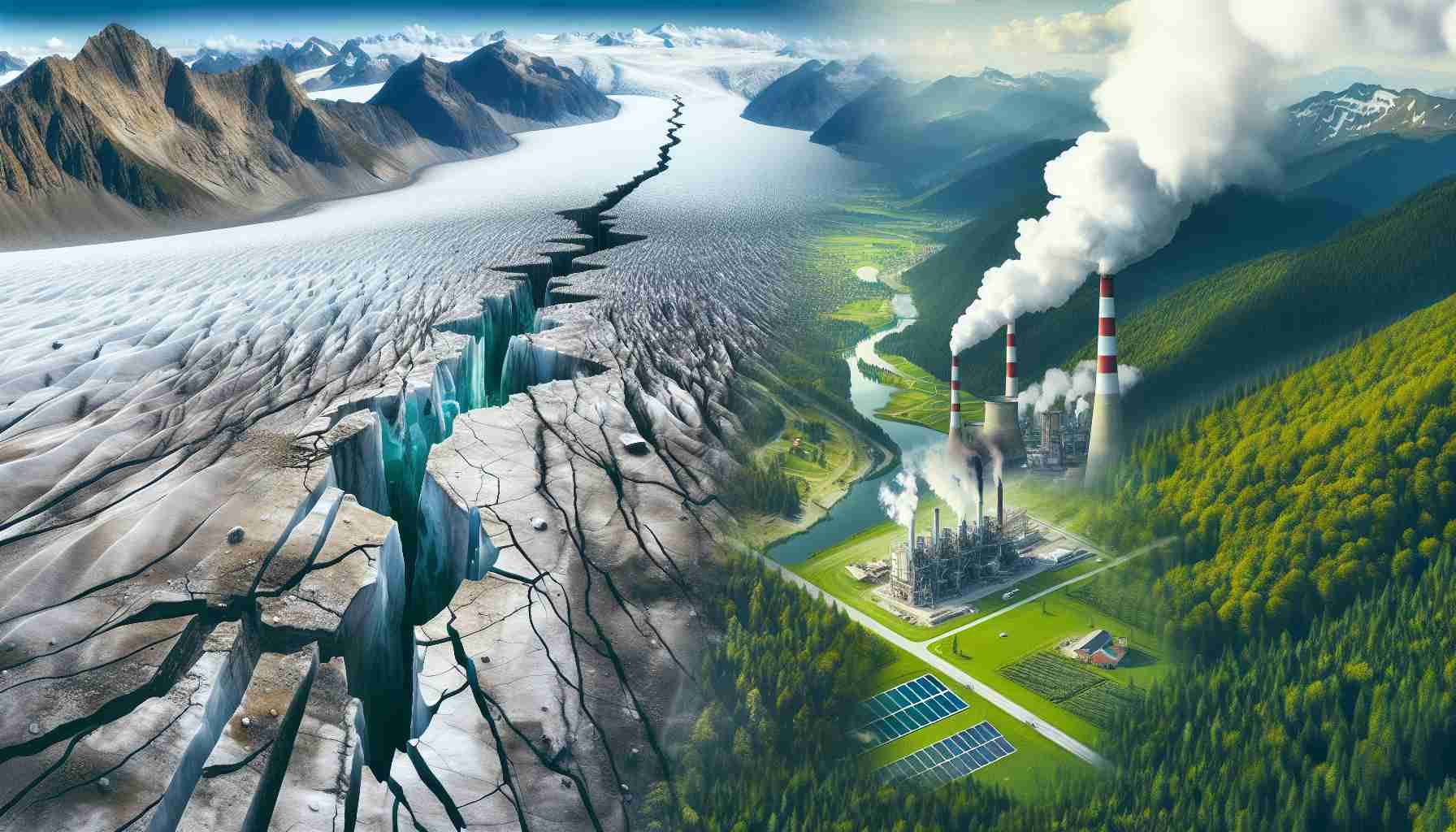A team of 14 climate scientists has issued a stark warning in their recent report titled “The 2024 state of the climate report: Perilous times on planet Earth”. They declare that Earth’s climate is currently in a major crisis that will worsen if we continue with business as usual. The report emphasizes the urgency of the situation, stating that we are on the brink of an irreversible climate disaster.
The report, published annually in the journal BioScience, is led by Oregon State ecologist William Ripple and his team of international scientists. Their findings indicate that 25 out of 35 “planetary vital signs” reached record levels in the previous year. These include global temperatures, human climate pollution, fossil fuel subsidies, heat-related mortality rates, meat production, and loss of forest cover.
Despite decades of warnings and efforts from scientists, policymakers, and activists, the world has made only minor progress in combating climate change. The authors emphasize that we are currently moving in the wrong direction, with increasing fossil fuel consumption and greenhouse gas emissions driving us toward a climate catastrophe.
While there are some positive indicators, such as the growth of clean energy production, it is clear that more needs to be done. The report calls for significant actions, including rapidly phasing down fossil fuel use, reducing emissions of methane, and implementing policies and programs to stop climate change and reduce the damage caused by climate disasters.
Without course correction, the report warns that climate change could lead to many millions of additional deaths by 2050. The stress on planetary vital signs, such as rising temperatures, sea-level rise, and loss of ice and tree cover, highlights the severity of the situation.
The report also references a survey conducted by The Guardian, in which three-quarters of climate scientists believe that humanity will miss the target set by the Paris climate agreement.
The need for decisive action is clear. While some positive signs, such as the increase in renewable energy consumption and the decline in deforestation due to government policies, offer hope, it is crucial that governments implement bold climate policies. The report concludes that the future course of our climate depends largely on the actions of governments in the coming years.
It is imperative that we act now to address the climate crisis and ensure a sustainable future for our planet and future generations. Our window of opportunity is closing, and urgent action is needed to prevent further irreversible damage.
FAQ: The 2024 State of the Climate Report
Q: What is the main message of the report?
A: The report states that Earth’s climate is in a major crisis, and urgent action is needed to prevent irreversible damage.
Q: Who conducted the report?
A: The report was conducted by a team of 14 climate scientists led by Oregon State ecologist William Ripple.
Q: What are “planetary vital signs”?
A: “Planetary vital signs” are indicators used to measure the state of the climate, such as global temperatures, climate pollution, fossil fuel subsidies, mortality rates, and loss of forest cover.
Q: What is the current trend in combating climate change?
A: Despite efforts from scientists, policymakers, and activists, the world has made only minor progress in combating climate change and is currently moving in the wrong direction.
Q: What actions does the report call for?
A: The report calls for significant actions, including phasing down fossil fuel use, reducing methane emissions, and implementing policies and programs to stop climate change and reduce its damage.
Q: What are the potential consequences of not addressing climate change?
A: Without course correction, climate change could lead to many millions of additional deaths by 2050, along with rising temperatures, sea-level rise, and loss of ice and tree cover.
Q: What did a survey by The Guardian reveal?
A: The survey revealed that three-quarters of climate scientists believe that humanity will miss the target set by the Paris climate agreement.
Q: What is the conclusion of the report?
A: The report emphasizes the need for decisive action and states that the future course of our climate depends largely on the actions of governments in the coming years.
Definitions:
– Fossil fuel consumption: The use and burning of fossil fuels, such as coal, oil, and natural gas.
– Greenhouse gas emissions: The release of gases, like carbon dioxide, methane, and nitrous oxide, that trap heat in the Earth’s atmosphere and contribute to climate change.
– Methane: A potent greenhouse gas produced by agricultural activities, waste management, and fossil fuel extraction.
– Paris climate agreement: An international treaty signed in 2015 that aims to limit global warming to well below 2 degrees Celsius above pre-industrial levels and to pursue efforts to limit the temperature increase to 1.5 degrees Celsius.
Related Links:
– BioScience
– Oregon State University
